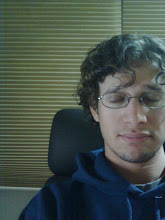The Diablo clone is a constant in the world of games. In the intervening decade between the second and third installments of the seminal franchise, many developers have attempted to fill the gap. Unfortunately, for all their admirable attempts, few manage to scratch that elusive Diablo itch. The question always remains: what makes Diablo so addictive? Din's Curse is developer Soldak Entertainment's latest crack at an answer.
The premise for Din's Curse is straightforward: the god Din has punished you, the player, for living a worthless life. Reborn into his service, you're tasked with helping people, performing good deeds until you can earn redemption. Ultimately, this boils down to crawling through randomized dungeons, performing randomized quests for randomized NPCs.
Randomization in Din's Curse goes beyond towns, dungeons and loot, and extends into the game world itself in the form of events. You (and maybe some friends, in multiplayer) hack and slash your way through dungeons, fighting monsters and finishing quests, but the world doesn't simple idly wait for you to act. Opposing factions of monsters can go to war or form alliances; named monsters can form their own parties, fight and level up; monster bosses take action against your town, sending scouts and raiders to kill vital NPCs such as merchants and questgivers (who can be replaced through quests, so don't worry about being completely screwed). Occasionally you'll even find that your quests became obsolete because the thing you were supposed to kill was killed by another monster or even an NPC adventurer. Din's Curse makes you feel that anything can happen (and usually does).
At times, this can be frustrating. Monsters seem to attack the town at the worst possible moments, just as you're exploring a new level of the dungeon and up to your eyeballs in Dark Elves thanks to a recent population boom. If the goal was to create tension, then it was successful, but only to a point (more on that later).
Soldak marries the classic randomization gimmick with another more modern, but no less familiar, one: choices and consequences. There's no binary morality system at work in Din's Curse but bad things can (and will) happen based on your failures. If a quest says its urgent, it means it. Fail to destroy a weather machine? Well, because their scheme was successful, the monsters are now building an earthquake machine. Did a monster scout make it to town and escape alive? Well then, prepare for war, my friend, 'cause it's coming. And if you fail to defend the town then you'll have a whole lot of quests to complete to get it back on track. The clock is invisible, so you never really feel the pressure of its ticking, but you're frequently reminded that you don't have time to waste on identifying all your magic items or scouring for every scrap of loot.
I'm sad that the wost things I can say about Din's Curse all stem from the fact that it's an indie game, with an indie budget. Soldak's effort is strong -- they have some great ideas and do their best with what they have -- but the game can't conquer its own limitations.
Redemption is a weighty theme and a lot could be done with the story of a resurrected stranger who wanders the world, doing good. The idea is made more appealing by the notion that your actions have tangible consequences. When you've done enough -- quelled hordes of monsters, cured illnesses, built defenses, saved lives -- a town is saved and you move on to the next. But because it's all stripped down and randomized, you have no reason to care. NPCs are utilities; no more than merchants and quest-givers. Din never speaks more than a few words or does anything, and your hero is just a blank slate; you never know what crimes he (or she) committed in the past to earn Din's punishment.
Typically, this isn't a problem. How many dungeon crawlers have engrossing plots? But the extremely limited graphics hold back the paper-doll effect as you collect loot -- I found no joy replacing my brown smudge with a grey smudge -- and the environments barely change; there are only so many variations of 'dungeon.' So without a reason to care, all of that tension that I mentioned before transforms into routine: go to a town, do some quests, move on to the next, do the same quests, repeat ad infinitum.
Din's Curse is the kind of game whose mileage will vary. With heaps of randomization, a dynamic world and tons of class combinations, you'll get out of it what you put into it. Its budget visuals don't impress but Soldak did an admirable job of working within their limitations. Monsters, at least, are interesting to look at, as Soldak relied more on angles and form than intricate details. Basically, it will run on just about anything. Combined with the indie price, there's almost no barrier to entry here. Furthermore, with all kinds of customization and difficulty options, it can be as casual or hardcore as you want it to be. If you're the type of RPGer who loves experimenting with different classes and styles of play, especially in groups, then there's a lot of replay value to Din's Curse. If not, then its wash, rinse, repeat routine will grow tiresome sooner than later.
Saturday Morning Breakfast Cereal - Mc
15 hours ago

No comments:
Post a Comment